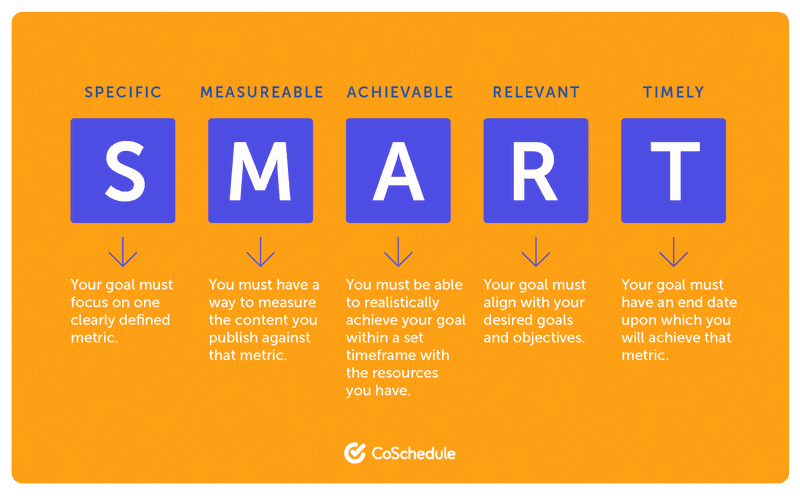What Does a Fractional CMO Do? Do You Need One?
Want to maximize your marketing efforts with the help of an expert - but don't have the resources for a full-time CMO? A fractional CMO may be what you need. Read here to find out more.
Updated November 7, 2024.

Feeling like your marketing efforts are like an autonomous car without a destination? Or maybe you’ve been juggling one too many hats in your company lately? A fractional CMO may be just what you need to take control of your marketing, ensure your team is led in the right direction, and your ROI is optimal.
What, more specifically, does a fractional CMO do? And do you actually need one?
Here’s what you need to know about fractional CMOs.
What is a fractional CMO?
A fractional CMO, also known as an interim CMO or a part-time CMO, refers to a Chief Marketing Officer who works with a company on a project or part-time basis. Fractional CMOs most commonly work with smaller businesses that require a CMO to provide their in-house marketing team with strategic guidance and direction but aren't yet ready to bring in a full-time Chief Marketing Officer.
A part-time CMO is a good option for a business that doesn't have the budget to hire a marketing executive in-house with the right level of expertise or hasn't developed its marketing department enough to make investing in a permanent, full-time CMO worthwhile.
In this role, an experienced marketing professional can bring valuable expertise and industry knowledge to the table, working with a company's executive team to develop and implement marketing initiatives, assess the performance of their marketing efforts, and oversee day-to-day operations.
The biggest advantage? An organization benefits from the CMO’s guidance and decades of experience but without the cost of adding one to your permanent head count. This is especially valuable during tough economic times when every new hire is under scrutiny.
Interim CMO responsibilities
Like a full-time CMO, a fractional CEO oversees all marketing activities across an organization. This includes management of the entire marketing department and the overall marketing function. Common responsibilities include:
- Developing marketing strategies
- Developing strategic brand positioning
- Overseeing technology integrations
- Managing overall marketing operations
- Managing and coordinating product launches
- Hiring and onboarding new marketing talent
- Coordinating outside resources like marketing agencies and vendors
- Working with internal teams like customer success and sales teams
- Optimizing marketing workflows
- Creating/managing the brand identity
- Analyzing setting marketing goals and monitoring performance and ROI
Reasons why more businesses hire part-time CMOs
Hiring fractional CMOs has been steadily growing in popularity as businesses become aware of a gap in their organization for an experienced marketing leader but aren't yet ready to make a permanent hire. Organizations turn to part-time CMOs for:
Flexibility
Part-time CMOs can be hired on for either long-term or short-term projects, and this offers organizations - especially early-stage companies - a huge amount of choice in how they deploy their services and where they want them to focus their time.
For example, an e-commerce startup might want to bring in a part-time CMO specifically to launch their go-to-market strategy or build creative engagement strategies for multiple marketing channels. Because there's no need to commit to a long-term contract, their scope of work can be as specialized as needed.
Cost-effectiveness
Hiring an experienced marketing executive is costly, especially if they're joining the C-suite. While experienced marketing leadership is essential for any successful organization, it simply isn't affordable for many small businesses and startups. According to Hook Agency, 48% of companies are already spending between 4-10% of their revenue on marketing, without considering hiring costs.
This is why hiring a CMO on a part-time basis offers a more affordable solution to save on full-time salary costs while still accessing their high-level expertise. This is especially effective when a business already has a marketing department in place, which can work together with the CMO to carry out their marketing strategy.
An outside perspective
It can be difficult to make informed marketing decisions when an organization is stuck in one mode of thinking. A 2021 study by Boathouse discovered that 86% of CEOs believe CMOs can influence key decisions, yet only 32% of CEOs actually trust them.
Because they aren't caught up in internal dynamics, part-time CMOs can help to bring an objective perspective to a business's marketing efforts and revenue growth strategies. They are appointed to provide C-suite and marketing directors with unbiased feedback about their marketing tactics and what they can do to improve their revenue engine.
How much does a fractional CMO cost?
Although they're much cheaper than hiring a full-time marketing executive, a fractional CMO can still represent a significant cost on a company's books, depending on the size and scope of the organization. The cost of hiring an outside marketing consultant like a part-time CMO will vary depending on several factors, including:
- Years of CMO-level experience
- The length of the project i.e., a short-term or long-term engagement
- The number of hours that are required each month
Part-time marketing executives normally bill on an hourly basis or a monthly retainer. Hourly rates range between $200-$450 per hour, which equates to anywhere between $5,000 - $20,000 per month. If a CMO has extensive experience in a specific niche, they may charge slightly more due to offering a more specialized set of services.
While this may sound like a lot, it's important to note that hiring a CMO on a part-time basis costs a fraction of what it does to hire for a full-time position. The average CMO salary in the United States can range anywhere from $150-300K per year plus benefits, part-time CMOs can represent a much better return on investment, especially for smaller companies and early-stage startups.
4 reasons you need a fractional CMO
Cost isn't the only reason businesses hire part-time CMOs. There's a range of ways that businesses will benefit by bringing a part-time CMO into the fold:
Grow your marketing
While the ideal scenario might be to manage all of your marketing in-house, this simply isn't practical for many businesses. This is due to the cost and the difficulty of gathering all the necessary experience within one team.
It can be more efficient to outsource CMO duties to a fractional CMO working a handful of hours per week with a very targeted list of responsibilities, as opposed to a full-time CMO trying to lead a team and directly manage areas such as email marketing or social media.
Access to strategic guidance
When your in-house team is running around ensuring that the functional aspects of marketing are getting done, having a CMO for just a handful of hours each week can make a world of difference to the quality of your strategy.
An experienced CMO working with you on a fractional basis can focus on helping you to develop and implement an impactful marketing strategy that aligns with your overall business goals. Because you have an in-house team to implement their recommendations, your CMO can focus purely on high-level planning, which maximizes the value you get from their time.
Focusing on core competencies
When businesses don't have executive-level marketing experience within their organization, this can leave other directors or executives tasked with trying to build an authentic brand - often with mixed results.
Bringing in an interim or a freelance CMO who has experience in creative storytelling or building a revenue engine enables companies to free up valuable time and resources to focus on what they do best.
You can leave the strategy, implementation, and analytics to a trusted expert, while you can focus on running your business and keeping customers happy.
Achieving scalability
Building a marketing team from scratch is a tough undertaking for both established and startup businesses. Hiring new talent is a major investment that takes resources away from other areas, but not doing so can result in business growth stagnating or your team becoming overloaded by new initiatives.
Hiring an outside marketing expert is a great way to scale your marketing efforts more quickly, but without having to commit a lot of budget to a permanent salary.
Stay up-to-date with the latest marketing technology
In-house teams are busy taking care of an organization's day-to-day marketing essentials. It can be difficult for them to stay up-to-date with the latest automation and technology platforms that could help streamline your operation.
It's the responsibility of the CMO to stay on the pulse of the latest technologies and trends that can help their clients. They can also help you to implement the right marketing tools for your needs to improve your ROI and efficiency.
How to hire the perfect fractional CMO
Not sure how to hire the right fractional CMO? Here’s a quick step-by-step guide you can use:
Step 1 - Decide on your goals
Before you start looking for the right person, it's essential to define your marketing goals and what results you expect to achieve. This will help you identify the right kind of CMO and what specific skills and experience they need to have.
For example, if a major business goal for this year is to optimize your marketing mix, you need to find a CMO who is highly experienced in cultivating long-term strategies for brand storytelling and organic marketing. They may also need experience in specific channels, such as email or content marketing. Deciding this early will ensure you stay focused on the key marketing challenges you want your expert to solve.
Step 2 - Write the job description
Once you've defined your goals and expectations for the role, you need to draw up a job description that covers the responsibilities, skills, and experience required for the position. Your job description should include the following:
- A brief summary of the company and the position.
- An overview of company objectives.
- The length of the project i.e. whether it's a long-term or short-term project.
- The number of hours per week/month your require.
- How the CMO will be compensated i.e. an hourly rate or a monthly retainer.
- A list of responsibilities like overseeing the marketing team, managing market strategies, building relationships with external vendors, etc.
- The level of experience required like years of experience, experience in a specific industry or vertical.
- Specific skills required like customer experience management, conversion rate optimization, brand management, etc.
It's important that your job description is detailed and contains a good overview of the role to avoid attracting the wrong candidates.
Step 3 - Advertise online
There are a wide variety of online platforms where you can advertise your CMO position, from professional networking sites to regular job sites where you can post your listing. It's important that you take the time to decide which websites are the best fit for your ideal applicant and to track submissions accordingly.
Step 4 - Ask your network
Another great way to find the right candidate is to ask your professional network. Instead of hoping the right people will see your job posting, you should ask your contacts for recommendations. And this saves you time on vetting candidates because you could get testimonials from businesses they have worked with.
Step 5 - Hire with Mayple
Mayple is a high-powered marketing platform that puts the top 1% of marketing professionals through a vigorous vetting process to find the very best talent. Our marketers each have an average of 4 + years of experience, as well as a proven track record in a wide variety of industries.
In addition to matching businesses with the right candidates, we also provide ongoing monitoring and support to ensure that both sides are getting what they want out of the relationship.
Best places to hire a part-time CMO
If you want to hire a part-time CMO, here are some places where you could start your search:
Specialist fractional agencies
There are a variety of agencies out there that specialize in offering a variety of fractional executive services to businesses in addition to marketing. These agencies are made up of highly experienced marketing professionals who specialize in specific areas of marketing and work with clients on a per-project basis.
Be sure to vet these agencies and their candidates carefully and ask for recent case studies with companies in your industry or niche. It's also worth noting that agencies tend to be one of the more expensive options.
LinkedIn can be another great place to start your search. Look for potential candidates by job title, location, experience, industry, and specific marketing expertise. This is a low-touch way to get a sense of what kind of CMO you're looking for before you commit to a specific job description.
Once you're further into the hiring process, you have the choice of posting your job directly to LinkedIn, or else reaching out to potential candidates via a personalized private message and asking whether they are interested.
Glassdoor
Glassdoor is a job search platform that allows businesses to both post job listings and also search for candidates. It has the added benefit of including reviews from both current and former employees to get a better sense of whether a potential candidate is a good fit for your company culture and work environment.
Referrals
The top 5% of marketing leadership and business leaders are rarely actively looking for new positions. Why? Because their hands-on experience and proven results mean that companies are often lining up to work with them. This is where referrals from mutual contacts can help to get your foot in the door with high-quality candidates that you may not have found otherwise.
Mayple
With our extensive portfolio of marketing professionals and advanced AI-powered matching algorithm, Mayple can help you find the perfect CMO-level expert for your business's needs. Using a variety of select criteria such as a fractional executive's track record, experience in specific niches, location, and more, you can feel confident that you have found the ideal candidate.
FAQs
How do you become a fractional CMO?
Becoming a fractional CMO requires at least 5-10 years of managerial experience as a marketing leader, as well as demonstrated success working across a range of different industries. Because part-time CMOs have less time to make an impact on an organization, they need to be very organized and results-oriented.
What is the difference between fractional CMO and interim CMO?
Both fractional CMOs and interim CMOs tend to be based at a company for short-term engagements. But while fractional CMOs will work for multiple businesses at the same time, an interim CMO will usually only serve as head of marketing in one organization at a time until a permanent CMO is found.
When should I hire a fractional CMO?
Businesses should consider hiring a part-time CMO when they are in need of a strong leader for their marketing operation, but don't have the budget to hire someone on a full-time basis. A part-time CMO can also help to identify key revenue growth opportunities or assist with rebrands or product launches.




